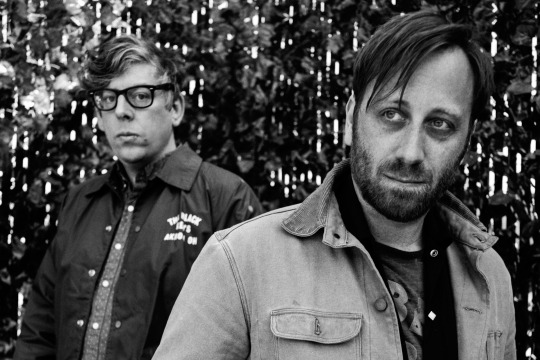
Hailing from Akron, Ohio, The Black Keys have had a career that spans almost two decades. In that time they have explored blues rock, garage rock and psych rock, and though some of their efforts have featured more expansive instrumentation, simplicity is a cornerstone of their sound. Their focus has always been on the groove between Dan Auerbach’s guitar and Patrick Carney’s drums, as well as Dan’s strong songwriting skills. For this reason, few artists have been in my rotation longer than The Black Keys. With nine studio albums under their belt, however, it is safe to say that some are better than others. I’ve put together a tier list of their discography from worst to best – here are my thoughts:
F Tier: Car Commercial Music (Let’s Rock)
Let’s Rock, The Black Key’s latest release, is their worst album to date. Maybe it’s because they set the bar so high with some of their other work, but in my opinion this is the boys at their most uninspired. This album marks a return to their roots after the sonic departure known as Turn Blue (more on that in a second), but when compared to their previous albums, this one just sounds watered down. It’s inoffensive, focus-grouped rock music that belongs in a car commercial.
D Tier: Is This Even Canon (Turn Blue)
Released in 2014, Turn Blue is the Black Key’s most adventurous album. Produced by Danger Mouse, this album is much more psych/pop than their other work. While I admire the risks they took with this record, I don’t think they always played out well. Turn Blue never scratched that Black Keys itch for me, but there are a few tracks that I enjoy.
C Tier: It’s OK I Guess (The Big Come Up and Magic Potion)
2002’s The Big Come Up was the Black Key’s debut album, and definitely their roughest. While there is a certain charm about its uncompromising grittiness, I think this approach translated much better on Thickfreakness and Rubber Factory. Meanwhile, 2006’s Magic Potion is The Black Key’s most forgettable effort. None of the material on it is necessarily bad, but the boys had already set the bar very high with 2004’s Rubber Factory. These two are the last of what I consider to be non-essential Black Keys records.
B Tier: Slightly Spicy (Attack & Release and El Camino)
This tier marks the beginning of what I consider to be the essential Black Keys canon. 2008’s Attack and Release and 2011’s El Camino are both classics in their own right, but I have a slight preference for the former. Attack and Release represents a musical risk that paid off for The Black Keys: the instrumental flourishes of flutes, synths, and even banjos sound right at home on the boy’s first album recorded in a professional studio. By comparison, 2011’s El Camino is The Black Keys’ most commercial album. You can tell songs like “Lonely Boy” and “Gold on the Ceiling” were written with the Top 40 in mind. El Camino is everything that Let’s Rock should’ve been – radio friendly, but still retaining that roughness that put the Black Keys on the map in the first place.
A Tier: Hey That’s Pretty Good (Rubber Factory and Thickfreakness)
2003’s Thickfreakness and 2004’s Rubber Factory represent the first Golden Age of Black Keys music. These albums proved that two guys in an Akron basement (or abandoned tire factory) could make compelling rock music with little more than a guitar and a drum set. When making this tier list, I seriously considered putting Rubber Factory in the number 1 spot. These two albums are definitely the Black Key’s most visceral projects.
S Tier: Chef’s Kiss (Brothers)
2010’s Brothers was the The Black Key’s commercial breakthrough and what made them a household name. Perhaps I am biased because it was my first exposure to the band, but I doubt I’m the only one who would say Brothers is the greatest Black Keys record. With it, Dan Auerbach and Patrick Carney managed to craft an album that not only paid homage to their roots but also diversified their sound, making it appealing to people who aren’t even rock fans. Thanks to tracks like “Tighten Up”, “Ten Cent Pistol”, and “Sinister Kid”, Brothers could be mistaken for a greatest hits record. I am especially fond of Dan’s falsetto on “Everlasting Light” and “The Only One” because it beautifully contrasts his normally rough, bluesy voice. Simply put, there is not a bad song on the album, and that is why it stands as the pinnacle of The Black Key’s discography.
That’s the tier list! Are you a Black Keys fan? If so, how would you rank their albums?
– DJ Mango
